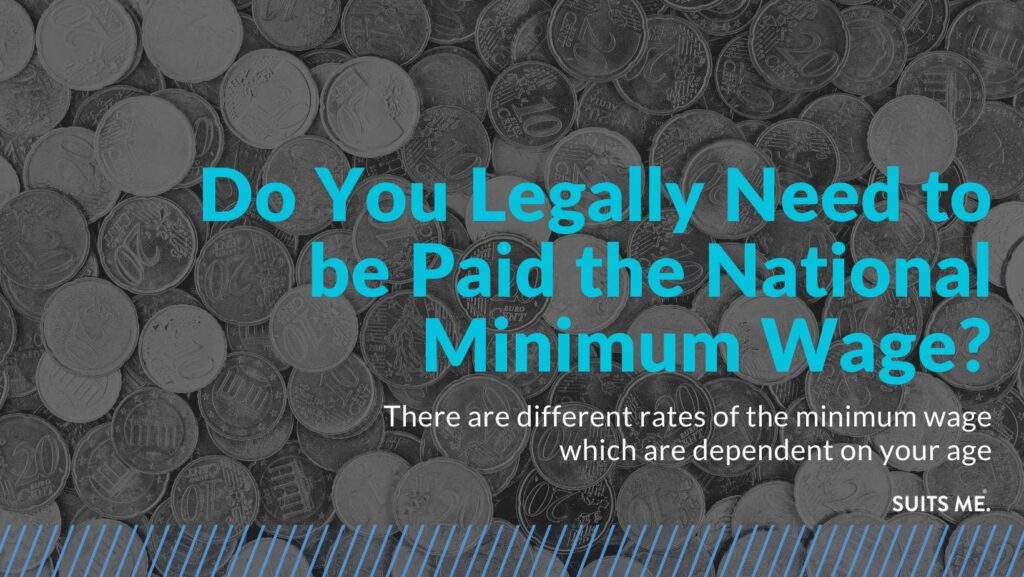
Most people who work in the UK should be entitled to receive at least the National Minimum Wage. This is a legally binding rate per hour that workers must be paid. Those who qualify for the National Minimum Wage also include casual workers, temporary workers, agency workers and people on zero-hour contracts – not just full or part-time employees.
There are different rates of the minimum wage which are dependent on your age. These rates change every April in line with inflation and cost of living – advised by the Low Pay Commission. Additionally, if you’re over the age of 23 (as of April 2021) and qualify for the National Minimum Wage you should be paid the National Living Wage.
National Minimum Wage vs National Living Wage
The Low Pay Commission released a statement explaining why there are different levels of minimum wage based on a person’s age. They said that there is “evidence that younger workers are more at risk of being priced out of jobs than older workers, with worse consequences if they end up unemployed.”
So, What are the Minimum Wage & Living Wage Rates in 2021?
| Age Range | National Wage Rates (April 2021) |
|---|---|
| Apprentice | £4.30 |
| Under 18’s | £4.62 |
| 18 to 20 Years | £6.56 |
| 21 to 22 | £8.36 |
| 23 and Over | £8.91 (National Living Wage) |
Exceptions to the Minimum Wage
There are some exceptions to those who are entitled to the minimum wage in the UK. These include:
- If you’re self-employed,
- Under 16 years old,
- Living and working with a family as a nanny when your accommodation and meals are provided,
- In the armed forces,
- A prisoner of HM prison service,
- A volunteer or doing work experience,
- Some agriculture workers
What to do if You’re Not Being Paid the National Minimum Wage?
If your wages don’t align with the National Minimum Wage guidelines, you can contact the public body, ACAS (Advisory, Conciliation and Arbitration Service), for free confidential advice. However, here are some steps you can also take in the meantime.
#1 Speak to Your Employer
If you’ve double-checked that your pay is calculated properly, your first step would be to speak to your employer. If for some reason, this doesn’t resolve the issue you can raise a grievance by writing a letter or email explaining why you’ve not been paid enough and request that they pay the difference.
But what if speaking to my employer doesn’t work?
#2 Letter of Conciliation
If raising a grievance doesn’t get the intended results an Impartial body, such as ACAS, can provide you with a conciliator, who can explain the conciliation process and talk through the issues and possible options you can choose to figure a resolution between you and your employer before the dispute goes to a tribunal. To get started, you should fill out a conciliation form.
#3 Take Your Employer to a Tribunal
The last resort, if you’ve still not received the money you’re owed, is to take your employer to a tribunal. However, this may involve you needed to seek legal advice or representation which could incur costs to you.
You must complete the above steps before taking your employer to a tribunal, but it must be done within three months less one day, of your most recent underpayment. In some cases, you may be able to take your employer to court if you’re over the three-month timeframe for a tribunal to take place.
#4 Report Your Employer to HMRC
Even if you choose not to raise a grievance with your employer, you can report them to HM Revenue and Customs who will decide whether to investigate your employer. It can take a long time, and it’s best if multiple employers of your company have reported them.
However, if you wish to claim back the money you’re owed, this may not be the quickest option. If your company is found to have broken the law regarding paying you the correct wage rates for your age, they can be fined £20,000 per worker.





